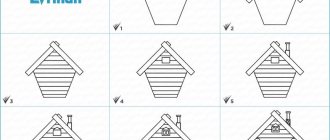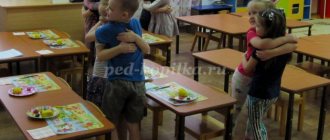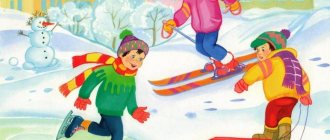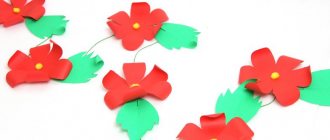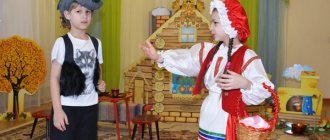Crafts from bushings
The senior group of kindergarten can diversify paper crafts with many other materials; this is typical for children of this age.
You can make various animals from toilet paper rolls or napkin rolls.
Shark from plates
To do such crafts with older children, you can purchase disposable paper plates of the desired color or paint them. Plastic ones can also be used, and if you need to paint, use gouache mixed with soap.
Cut out a sector from a plate and glue teeth from this piece or paper to create a toothy mouth.
Partially paint the body blue and leave the belly white. Glue the paper tail and fin to the back.
Eyes can be drawn or glued.
Drawing birds
Drawing a bird in the older group follows the same plan as the lesson on depicting animals. First, all details are compared with geometric shapes, attention is focused on movement, head tilt, and location on the landscape sheet. Here is an example (drawing a peacock):
- draw an oval body;
- a round head on top;
- the neck goes from the head along an oval;
- draw triangular wings on the body;
- add paws with three fingers to the oval;
- on the head you draw round eyes and a triangular beak;
- from one wing to the other, outline a loose tail, similar to daisy petals;
- color the bird with paints.
Drawing in the older group allows you to depict birds from different sides, in action. This is what the profile of a rooster looks like. You start working from the head. Draw a circle, mark the eye, a triangular beak with a transverse line, an oval beard and a comb of three petals.
From the head, draw a neck with a collar similar to the shape of a flared skirt. From it you continue the concave body, which together with the neck resembles a crescent. Next, draw a tail of eight feathers: the first long, raised up, four feathers starting from the end of the body, the last short, extending to a third of the body and hanging down.
On the body, a wing is drawn with a line, legs with four fingers and spurs. On the wing, sharp horizontal arcs indicate feathers, and vertical lines indicate long feathers. The claws are drawn on the fingers in small arcs.
